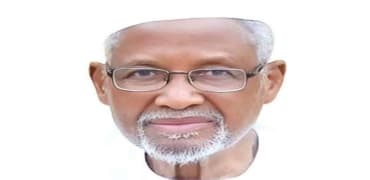$18 Billion Down the Drain”: Dangote Doubts NNPC Refineries Will Ever Work Again
💥 “$18 Billion Down the Drain”: Dangote Doubts NNPC Refineries Will Ever Work Again
Aliko Dangote has dropped a truth bomb—and it's shaking the foundation of Nigeria’s decades-long refinery dilemma.
During a tour with top African CEOs at his multi-billion-dollar Lekki-based refinery, Africa’s richest man made a stunning declaration: Nigeria’s state-run refineries—Port Harcourt, Warri, and Kaduna—may never come back to life.
And for good reason. According to Dangote, the government has already poured an eye-watering $18 billion into the plants, yet they remain paralyzed.
“They’ve spent about $18bn on those refineries and they’re still not working. And honestly, I doubt very much if they’ll ever work,” he said bluntly.
Dangote was addressing executives from Global CEO Africa, hosted by the Lagos Business School, after showcasing his 650,000 bpd Dangote Petroleum Refinery—the largest in Africa and a beacon of what’s possible when private sector ambition meets execution.
🚧 A Broken Dream Built on Public Funds
Dangote, visibly passionate and perhaps a bit exasperated, recalled how his attempt to privatize the moribund refineries in 2007 was abruptly blocked by the incoming Yar’Adua administration, which reversed the deal made under President Olusegun Obasanjo. The reason? Allegations that the facilities were sold “too cheaply” as a farewell gift.
“We bought the refineries in January 2007. But by May, we had to hand them back. The new administration said they’d fix them. Look where we are today.”
According to Dangote, those refineries could barely commit 22% of their output to petrol, while his own refinery is already hitting over 50% for Premium Motor Spirit (PMS). That’s a massive efficiency gap.
He compared the futile refurbishments to retrofitting a 40-year-old car with a modern engine:
“Even if you change the engine, the old body just can’t take it. It’s outdated tech. It won’t survive.”
🗣 Obasanjo: “They Should Be in Jail”
Former President Olusegun Obasanjo—who originally sold the refineries—has also been vocal. He insists the refineries have long been a sinkhole for corruption, not productivity.
“When people were ready to make them work, they were blocked. NNPC said they could do it. But they lied. Shell refused to run them, saying they were unviable,” Obasanjo said last year.
His damning conclusion: “They’ve squandered over $2 billion since then. The same refineries still don’t work. And yet people are pretending like they do.”
He even dropped a stinging Yoruba proverb:
“After harvesting 100 heaps of yam, the farmer will still claim he planted 200. That’s the lie we’re living with today.”
⚙️ A Case for Scrap — And a Fresh Start
The recent shutdown of the Port Harcourt refinery—barely six months after it was declared operational—only underscores the deep dysfunction. Warri followed suit shortly after.
From $1.4 billion approved in 2021 for Port Harcourt’s rehab, to hundreds of millions allocated to Warri and Kaduna, the numbers are staggering. Yet the results? Disappointing, at best.
Industry leaders, including the Manufacturers Association of Nigeria and private refiners, are calling on the government to sell the refineries as scrap, redirect the funds to modular refineries, and end the bleeding.
🧾 Quick Breakdown of the Bill (So Far):
Refinery Allocation (USD)
Port Harcourt $1.4 billion
Warri $897 million
Kaduna $586 million
Monthly Expenses (2021) ₦8.33 billion
TAM (2013–2017) $396.33 million
📵 NNPC? Silent.
Despite multiple attempts, the Nigerian National Petroleum Company Limited (NNPC) could not be reached for comment. No official spokesperson, no response to calls, and unanswered messages.
🔍 Final Verdict?
While the government refineries burn through billions without producing a drop, Dangote’s refinery is already exporting jet fuel, diesel, and soon petrol—a powerful symbol of what Nigeria can achieve, if it lets go of its broken machinery and dares to move forward.
In the words of the billionaire himself:
“We built this from scratch. Now we’re refining for the future. Nigeria should stop living in the past.”
By Haruna Yakubu Haruna



















